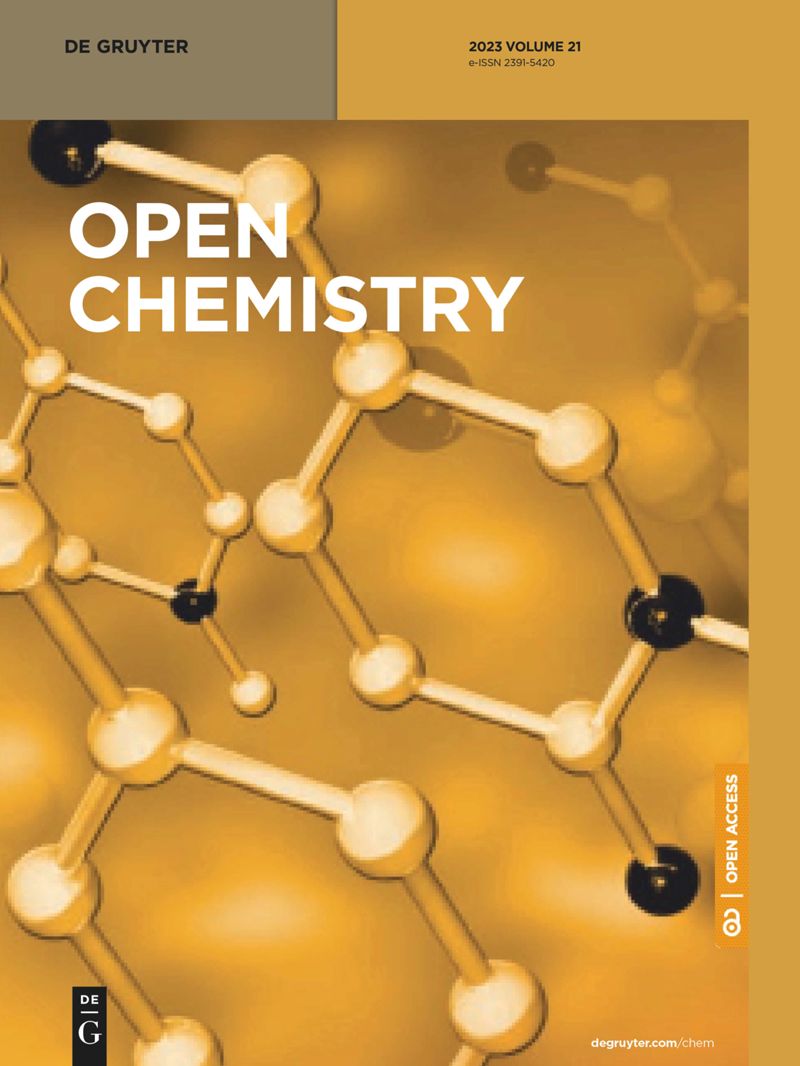番茄红素-胡萝卜水乙醇提取物的细胞毒性和植物化学筛选及其作为抗癌剂的番茄红素含量的硅学评估
IF 1.9
4区 化学
Q3 CHEMISTRY, MULTIDISCIPLINARY
引用次数: 0
摘要
本文探讨了含有番茄红素(一种存在于番茄中的色素)的特定功能性混合食品在预防和治疗宫颈癌方面的潜力。文章评估了番茄红素对宫颈癌细胞的细胞毒性作用,并进行了分子对接分析,以了解番茄红素的生物活性和结合相互作用。文章分析了制剂的植物化学成分,并使用分光光度法评估了其体外抗氧化活性。对宫颈癌细胞进行的细胞毒性测试表明,番茄乙醇提取物的细胞毒性抑制率最高(40.28%),而胡萝卜的细胞毒性作用最小。此外,番茄红素提取物的细胞毒性呈剂量依赖性,最高浓度(1,000 微克/毫升)的抑制作用显著(74.2%)。分子对接分析表明番茄红素与促凋亡蛋白 BAX 1 之间存在有利的相互作用,这表明番茄红素具有诱导宫颈癌细胞凋亡的潜力,但喜树碱则表现出更强的相互作用。分子动力学模拟证实了番茄红素-蛋白复合物在整个 100 ns 模拟过程中的稳定性,支持其作为抗癌剂的潜力。总之,该研究强调了番茄-胡萝卜食品提取物和番茄红素对宫颈癌细胞的细胞毒性作用。番茄红素-蛋白质复合物的稳定性分析进一步证实了其抗癌特性。这些发现加深了我们对番茄红素抗癌作用的分子机制的理解,并为今后研究新型宫颈癌化学预防策略提供了启示。然而,还需要进一步的体内和临床研究来验证基于番茄红素的干预措施的有效性和安全性。本文章由计算机程序翻译,如有差异,请以英文原文为准。
Cytotoxic and phytochemical screening of Solanum lycopersicum–Daucus carota hydro-ethanolic extract and in silico evaluation of its lycopene content as anticancer agent
This article explores the potential of a specific functional food mix containing lycopene, a pigment found in tomatoes, for its role in cervical cancer prevention and treatment. The article assesses the cytotoxic effects on cervical cancer cells and conducts molecular docking analysis to understand the biological activities and binding interactions of lycopene. The formulations are analysed for their phytochemical profile, and their in vitro antioxidant activities are evaluated using spectrophotometric methods. Cytotoxicity tests on cervical cancer cells demonstrate that the ethanol extract of tomatoes exhibits the highest cytotoxic inhibition (40.28%), while carrots show minimal cytotoxic effects. Moreover, the lycopene extract exhibits dose-dependent cytotoxicity, with the highest concentration (1,000 µg/mL) displaying remarkable inhibition (74.2%). Molecular docking analysis indicates favourable interactions between lycopene and the pro-apoptotic protein BAX 1, suggesting its potential to induce apoptosis in cervical cancer cells, but camptothecin demonstrated stronger interactions. Molecular dynamics simulations confirm the stability of lycopene–protein complexes throughout the 100 ns simulation, supporting their potential as anticancer agents. Overall, the study highlights the cytotoxic effects of tomato–carrot food extracts and lycopene on cervical cancer cells. Molecular docking reveals the potential of lycopene to induce apoptosis through interactions with BAX 1. The stability analysis of lycopene–protein complexes further supports its anticancer properties. These findings enhance our understanding of the molecular mechanisms underlying the anticancer effects of lycopene and provide insights for future research on novel chemopreventive strategies for cervical cancer. However, further in vivo and clinical studies are warranted to validate the efficacy and safety of lycopene-based interventions.
求助全文
通过发布文献求助,成功后即可免费获取论文全文。
去求助
来源期刊

Open Chemistry
CHEMISTRY, MULTIDISCIPLINARY-
CiteScore
3.80
自引率
4.30%
发文量
90
审稿时长
6 weeks
期刊介绍:
Open Chemistry is a peer-reviewed, open access journal that publishes original research, reviews and short communications in the fields of chemistry in an ongoing way. The central goal is to provide a hub for researchers working across all subjects to present their discoveries, and to be a forum for the discussion of the important issues in the field. The journal is the premier source for cutting edge research in fundamental chemistry and it provides high quality peer review services for its authors across the world. Moreover, it allows for libraries everywhere to avoid subscribing to multiple local publications, and to receive instead all the necessary chemistry research from a single source available to the entire scientific community.
 求助内容:
求助内容: 应助结果提醒方式:
应助结果提醒方式:


